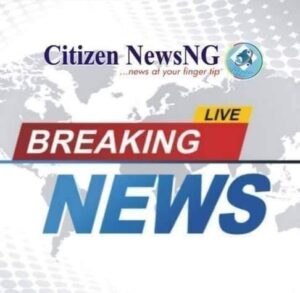
The United Kingdom (UK) has spent over £50million to support electoral processes in Nigeria in the last five years, it was learnt Friday.
The Head of Governance and Stability at the UK Foreign and Commonwealth Development Office, Sam Waldock, disclosed this at a retreat of the Joint Technical Committee on the Electoral Act Amendment Bill 2020, held in Abuja.
Waldock said the UK being a supporter of Nigeria’s democracy and its electoral system was ready to offer more assistance to further enhance it.
“The United Kingdom is a proud supporter of elections and democratic process in Nigeria.
“In the last five years, the UK had invested over £50million into Nigeria’s democratic process.
“We recognise Nigeria as the largest democracy in Africa, and a leading member of the Commonwealth of nations.
“It will therefore be good to have a robust comprehensive system is place far ahead of the general election so that adequate preparations could be made,” Waldock said.
The Chairman, Independent National Electoral Commission, Prof. Mahmood Yakubu, lauded the efforts of the National Assembly joint Committee on INEC, Senate Committee on INEC at giving the country, a new legal framework for the conduct of elections.
Yakubu who was represented by a National Commissioner of INEC in charge of Voter Education, Festus Okoye, said, “This renewed drive is timely and must be sustained and approached with a sense of history and urgency.
“The reform must be impactful and should be concluded by the first quarter of 2021.
“INEC is committed to the process of the amendment and would make recommendations that would improve elections in Nigeria.
“However, it must be borne in mind that amending the electoral legal framework will not automatically guarantee or lead to improvement in the management and conduct of elections.
“The Constitution and the Electoral Act can only be effective through the action and inaction of the critical stakeholders in the Electoral process.
“The Constitution and Electoral Act can enhance the electoral process if the electoral management body, political parties and the Electoral actors, the security agencies, the media and civil society organisations effectively play their roles.”
He urged all critical stakeholders to demonstrate respect for the constitution and the law.
He added, “Nigeria democracy and electoral processes will become more robust if the critical stakeholders in the process resolve to restore sovereignty to the people as the true determinant of the outcome.”
The Attorney General of the Federation and Minister of Justice, Abubakar Malami (SAN), pledged to work with the technical committee to ensure unhindered presidential assent to the bill.
The Special Assistant to the President on Justice Reform and International Relations Office, Mrs. Juliet Ibekaku-Nwagwu represented Malami at the session.
The AGF said: “I will continue to work more closely with the National Assembly to ensure that the bill is eventually passed as scheduled.
“I recall that immediately after the 2015 elections the President approved the inauguration of the constitutional and electoral reform committee in 2016, working with the National Assembly and came up with four bills that had been approved by the the Federal Executive Council and forwarded to the National Assembly.”
The Chairman, Senate Committee on INEC, Senator Kabiru Gaya, said the bill would reshape the political landscape of the country.
“We have received 24 written memorandum and verbal presentations from different interest groups.
“There is no doubt that we have more than enough valuable input from Nigerians for consideration,” Gaya said.
By Sanni Onogu












